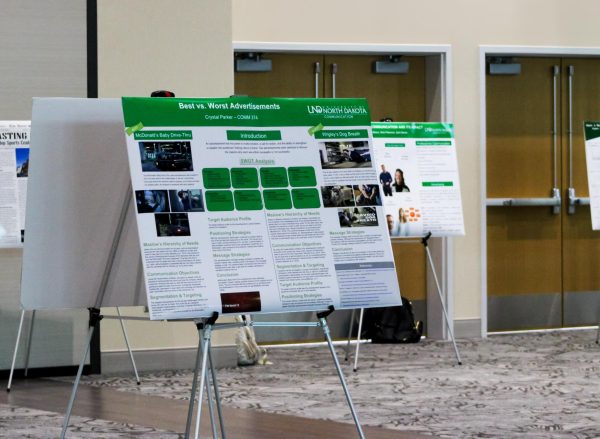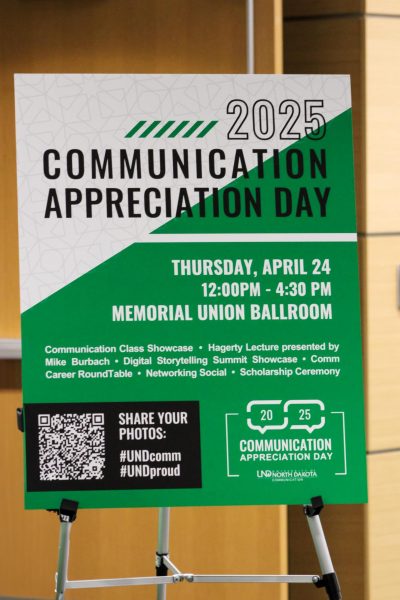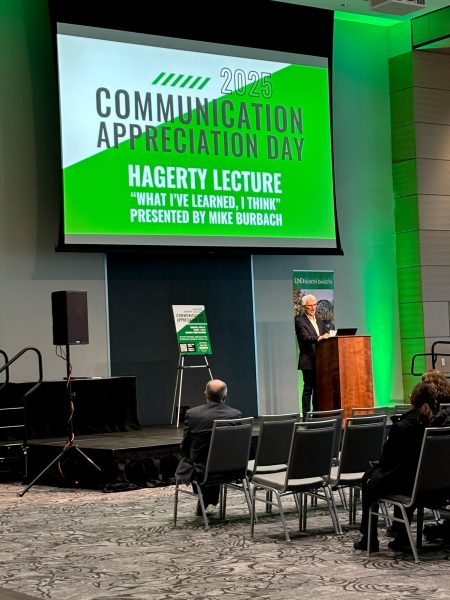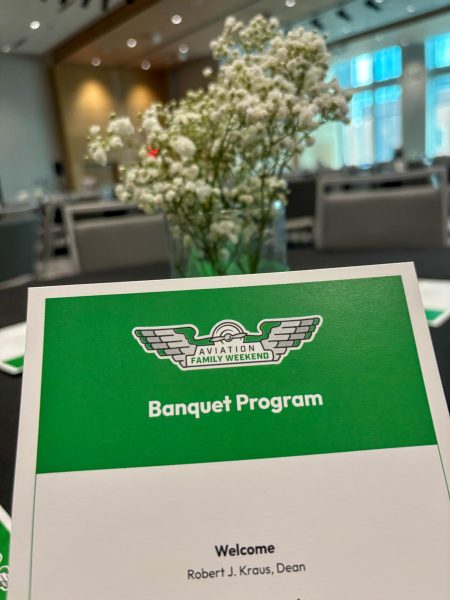Studying at night
EVENING: Late classes a hindrance to some and schedule-saver for others.
When most people think about taking classes at a university, they think of students strolling around campus in the sunshine on their way to early morning classes.
But, that image is becoming less of a norm as more people take classes at night.
Most upperclassmen have taken a night class at some point in their college career, and those who haven’t are often considered lucky.
Night classes are usually held one night a week for up to three hours and are offered in a variety of departments.
Sophomore Taylor Bruer took a public speaking course from 8 to 10 p.m. last year.
“I really didn’t like it,” she said. “All you want to do is go to bed, and listening to speeches didn’t help.”
Bruer prefers to take classes in the morning to get done early and have the afternoon and evening to do other activities.
Another student with similar feelings is Shelby Lund, who took a chemistry lab last year that landed on Thursday night.
“I hated it because I got done with class at 1 p.m. and then would have to wait around all day,” Lund said. “I have a hard time focusing because I didn’t have class on Friday, so all I could think about was hanging out with friends. My focus wasn’t chemistry.”
Affecting schedules
However, others do find late classes helpful when busy schedules fill their mornings.
Jason Lawrence, academic advisor for the College of Arts and Sciences, said he sees how late classes can be helpful to some students and a pain for others.
“For non-traditional students, part-time students, people who are switching careers or students who work full-time, night classes are great,” Lawrence said.
The complaint that Lawrence hears most from students about night classes is that it can be very inconvenient for people who work in the service industry because most people have to take off or lose a night of work each week.
Senior Justin Bolten has also experienced this problem.
“It’s very inconvenient because I have a job, so I always have to take work off,” Bolten said.
The other big complaint is that it is difficult to pay attention for that long.
“It is much easier to sit down and learn at 10 a.m. than at 8 p.m.,” Lawrence said.
According to Lawrence, it is usually up to the department chair and dean of a college and the registrar’s office.
These individuals usually look at the demand that a particular course has — such as looking at waiting lists — and decides from there to add class sections and when they should be offered.
One person who finds that night classes work well for him is professor Jim Abbott. Abbott works full-time outside of UND for the State Association of Certified Public Accountants. He teaches Business and Professional Communication Tuesday from 6 to 8:50 p.m.
Abbott says that he likes to have one night of teaching because it is easier to plan for and it works well for his schedule. Abbott tries to incorporate activities to engage the students and makes sure his is not the only voice talking all night.
“Night classes work much better for me,” said Abbott.
Ashley Marquis is a staff writer for The Dakota Student. She can be reached at ashley.m.marquis@my.und.edu.






